Committees > International Scientific Committee (details)
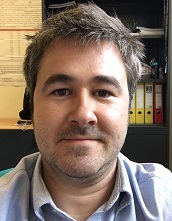 |
Isaac ARANDA-RENEO currently works at the University of Castilla-La Mancha, where he also carries out my scientific and technological activity, focused on the identification of the consequences of disease and health problems from a broad point of view. He mainly designs and carries out cost-of-illness studies and economic evaluation of health care technologies. The findings are quite useful for identifying key action points on which public authorities and private individuals may make decisions based on the evidence. |
| |
Simone BATEMAN’s research focuses on ethical issues raised by innovative technology in medical and scientific practice, particularly in the field of reproduction. These issues play out as practical dilemmas whose moral dimension is tightly intertwined with other normative considerations (technical, social, legal, political, economic...). Most of her research includes a comparative component that illustrates how normative priorities vary in different practical contexts, legal systems and cultures.
|
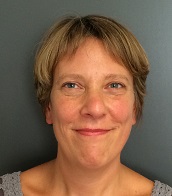 |
Julia BONASTRE is the head of the team Etudes et Recherche en Economie de la Santé at Gustave Roussy. Her research interests cover economic evaluation, health care resource use and applied econometrics. She participates in several cost-effectiveness studies alongside randomized controlled trials in cancer with a focus on new anti-cancer drugs and biomarkers. Another area of research is the production function of highthrouput technologies. |
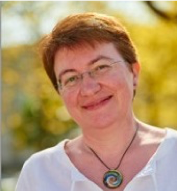 |
Gisèle BONNE team research topics focus on the genetic and pathophysiology of neuromuscular disorders (NMD): the myopathies due to defects of the Myomatrix and of the Myonucleus. |
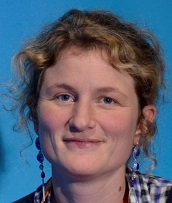 |
Geneticist and sociologist of sciences at INSERM, Catherine BOURGAIN is the director of the Research Centre for Medicine, Sciences, Health, Mental Health and Society (INSERM, CNRS, EHESS, Univ. Paris). After conducting research in genetic epidemiology for 10 years, she conducts interdisciplinary studies on the diffusion of genomic technologies in the context of healthcare (cancer, cardiovascular disease) and research (population genetics). She is a member of Inserm's Ethics Committee. |
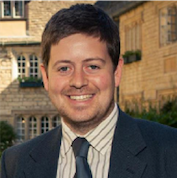 |
James BUCHANAN joined the Health Economics Research Centre in 2005 and works predominantly on projects examining the economics of translating genomic technologies from research into clinical practice. Recent publications include a microcosting study of genome sequencing for cancer and rare diseases in the UK NHS, a systematic review on the cost-effectiveness of genome sequencing, and a discrete choice experiment evaluating health professional preferences for genomic testing.
|
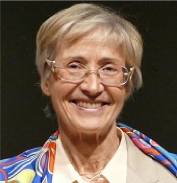 |
Anne CAMBON-THOMSEN Emeritus Research Director at CNRS, medical doctor specialised in immunogenetics and health ethics, her recent research focuses on the societal issues of biotechnology, the implications of genomics in health and open science, within a unit on epidemiology and public health. A member of the European Group on Ethics in Science and New Technologies, she co-leads a working group of the Plan France Genomic Medicine and is an ambassador for the Research Data Alliance. |
| |
Sarah CARVALLO’s research focuses on the symmetrical construction of medicine and human body in the modern western area. While the modern western medicine structured itself as a science, an institution and a system of practices, it determines also representations, uses, norms on the human body embodied through knowledge, cure and care and experienced by individuals. She proposes epistemic and conceptual analysis concerning crucial issues of medicine, such as life, death, body, norm, ages, care, cure.
|
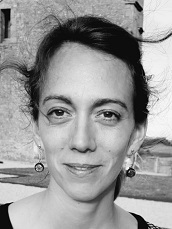 |
Aline CHASSAGNE is a researcher at the university hospital in Besançon, France. Her research topics are in the field of health and ethical issues. She has been involved in several projects in the field of ethical issues in genetics. She is also teaching advanced practice nursing and sociology at the university. |
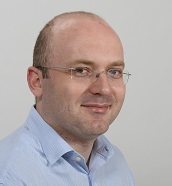 |
Jean-Claude K. DUPONT is a philosopher by background with two main fields of interest: in research ethics (esp. in paediatric oncology) and in economic research and evaluation in health (Deputy of Hospinnomics, a research chair endowed by AP-HP and Paris School of Economics), and vice-chair of French Committee for economic evaluation and public health at HAS). He currently works at Greater Paris Hospitals (AP-HP) and teach in the University of Paris (Paris 5 – Team ETREs – UMRS 1138).
|
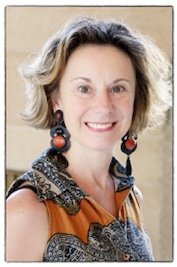 |
Isabelle DURAND-ZALESKI Health economics and health technology assessments both trial-based and model based, concerning mostly complex interventions, diagnostics, procedures and devices. |
| |
Laurence FAIVRE is a Hospital Practitioner in medical genetics in Dijon University Hospital, and a full Professor at the University of Burgundy. She supervises the Clinical Genetics departement and coordinate a Reference Center for developmental diseases. She also co-coordinates the research team INSERM 1231 Genetics of Developmental Disorders (GAD) Team and the FHU-TRANSLAD, a multidisciplinary project dedicated to NGS.
|
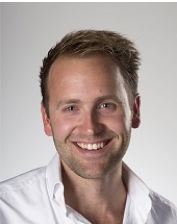 |
Geert W. J. FREDERIX Research with a focus on (early) economic evaluations of innovative diagnostic technologies in rare disease and oncology. |
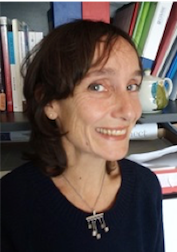 |
Sabina GAINOTTI is a Sociologist and a Bioethicist and she has been working in the development of platforms to facilitate the set-up of rare disease registries that are compliant with ethical, legal and social (ELSI) requirements to make RD data Findable, Accessible, Interoperable and Reusable (FAIR), in particular for the European projects EPIRARE and RD-Connect. She collaborates with the network for the study of undiagnosed rare diseases at the Istituto Superiore di Sanità. |
 |
Holm GRAESSNER is the Managing Director of the Centre for Rare Diseases of the University Hospital Tübingen, Germany. As a research and healthcare manager his particular interest is to create and coordinate research and care infrastructure networks in order to improve the quality of care being provided as well as to establish trial-readiness for rare diseased. He is the coordinator of the European Reference Network for Rare Neurological Diseases and of Solve-RD. |
 |
Gulcin GUMUS is the Research and Policy Project Manager at EURORDIS. Her responsibilities include supporting EURORDIS involvement in EU research projects as well as contributing to discussions and advocacy topics relevant to rare disease research and policy. Dr. Gumus has a Bachelor’s degree in Molecular Biology and Genetics. She also holds a PhD. in Fetal Medicine where she worked on research projects aiming to develop pre-clinical therapies for rare prenatal and childhood diseases. |
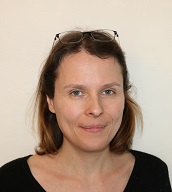 |
Catherine LEJEUNE’s work focuses on the collective and individual decision-making process. The question of the allocation of collective resources is addressed with medico-economic studies. She is also conducting qualitative and mixed studies combining sociological and psychological approaches to investigate the logic of choice of patients, caregivers and carers towards health strategies and to explore the impact of these decision on their experience.
|
 |
Milan MACEK is the chairman of the largest academic medical/molecular genetics institution in Czechia, which comprises a research/diagnostic reproductive genetics centre. He was a president of the European Society of Human Genetics (ESHG), board member of the European Society for Human Reproduction and Embryology (ESHRE), and board member of the European Cystic Fibrosis Society (ECFS). He has been involved in health economic studies in a model rare disease (cystic fibrosis), including genomics analyses.
|
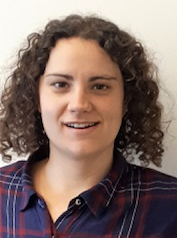 |
Jennifer MARGIER is a health economist (PhD), specialized in economic evaluation in healthcare with a special interest on elicitation methods of healthcare user’s preferences. She is currently member of SEQOGEN project (France Genomic Medicine Plan 2025) that aim to assess two platforms of ultra-high-throughput sequencing. She involved on the sequencing production cost evaluation and pricing models development. |
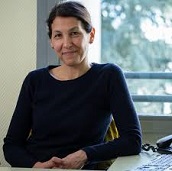 |
Nora MOUMJID is Senior Lecturer in health economics at the Faculty of Pharmacy and Biological Sciences, Claude Bernard Lyon 1 University. She is member of the HESPER research lab (EA 7425) and of the Cancerand Environment Department of the Léon Bérard Regional Cancer Centre in Lyon. Her research is focused on healthcare users' preferences analyses, shared decision-making in the medical encouter and decision aids in cancer area. |
 |
Carla OLIVEIRA's team focus on unveiling and characterizing hereditary gastric cancer heritable causes, while chasing diagnostic and follow-up biomarkers with clinical utility. They discovered that CDH1 germline deletions cause Hereditary Diffuse Gastric Cancer (HDGC) and that cleft/lip-palate is a HDGC phenotype. These discoveries are used in clinical practice worldwide. They also design disease-specific pathways of care to reliably predict healthcare costs and push for better outcomes in hereditary cancers. |
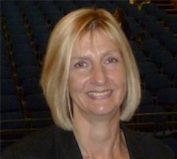 |
Katherine PAYNE is an academic health economist with applied and methodological research experience in the economic evaluation (using RCT and decision-analytic models) and valuation (using discrete choice experiments) of health care interventions. She is recognised internationally as an expert in the economics of precision medicine and for methodological work in the evaluation and valuation of the benefits and harms from genomic technologies.
|
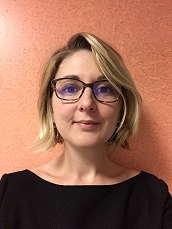 |
Aurore PELISSIER is specialized in health economics and her researches particularly deal with organization, performance and financing of healthcare systems, and with issues and impact of the dissemination of new therapeutic and prevention strategies (particularly in the context of the development of medico-genomics). |
 |
Lionel PERRIER Dr. in economics and qualified to supervise doctoral research (GATE LSE, UMR CNRS 5824), he is responsible for the innovations and strategies unit in the Clinical Research Direction of the Cancer Centre Leon Berard, Lyon, France, and member of the Economic and Public Health Evaluation Committee (CEESP) of the French National Authority for Health (HAS).
|
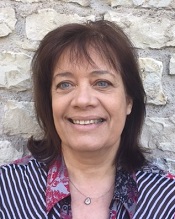 |
Christine PEYRON is senior lecturer and head of the health economics team of LEdi (University of Burgundy). She works in health services research and on dissemination of innovations in health systems. In the field of genomic medicine, her research mainly focuses on patient preferences and personal utility analysis. |
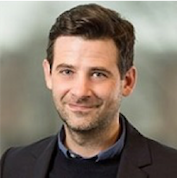 |
Dean REGIER is a Scientist within Cancer Control Research, BC Cancer, and an Associate Professor at the School of Population and Public Health, University of British Columbia. Over the past 15 years, his interests have focused on the economics of access to precision medicine, particularly in context to supporting patient -centre and sustainable learning healthcare systems. |
 |
Emmanuelle RIAL-SEBBAG. Lawyer in health law and bioethics-Inserm Director of research. Leader of a multidisciplinary team, BIOethics ExploringTrajectories of Health Innovations Challenging Society, at the Inserm/Paul Sabatier University 1027 Unit (Toulouse). She is involved in research projects at National, European and International level dealing with the ethical, legal and social issues of innovations in health including genetics and genomics. She is responsible forthe UNESCO Chair “Ethics, Science and Society”. |
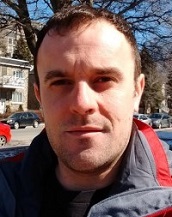 |
Jean-Baptiste RIVIERE is a molecular geneticist specialized in identifying genetic alterations responsible for Mendelian disorders using genomic and associated bioinformatics tools, and translating genomic technologiesinto clinical practice. He is assistant professor at McGill's Department of Human Genetics (Montréal, QC, Canada), the Scientific Director of the MUHC clinical molecular genetics laboratory, and the Director of the RI-MUHC Bioinformatics Platform. |
 |
Mandy RYAN’s research interests centre around taking a person-centred approach to valuation in health economics. She is best known for her work challenging the clinical approach to evaluation and for developing alternative person-centred approaches. She introduced discrete choice experiments (DCEs) into health economics in the early 1990s and her research has applied DCEs in a wide range of contexts to take account of the user preferences in
|
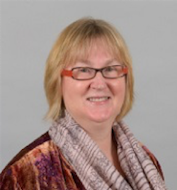 |
Deborah SCHOFIELD GenIMPACT focuses primarily on the impacts of genomics in terms of health outcomes and cost effectiveness taking account of diagnosis, treatment and reproductive planning. She also takes account of impacts across multiple government portfolios addressing health, economic, and social policy priorities as well as the economy. She aims to capture the impacts of these frontiers of science across the life course, and in many cases, for generations. |
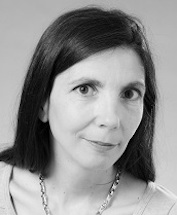 |
Valerie SEROR is an health economist involved in the analysis of public choices and individual beahaviors as regards health risks prevention, screening, and care when it comes to targetted therapies. |
 |
Marta TRAPERO-BERTRAN is an associate professor at the International University of Catalonia (UIC), Barcelona (Spain). Her research is on health economics and her main areas of interest are economic evaluation and allocative efficiency. She is a member of the Financing Committee for Pharmaceuticals in Catalonia (regional level, CFT-SISCAT) and also a member of the Advisory Committee for the Financing of the Pharmaceutical Benefits of the Spanish Ministry of Health, Consumption and Social Welfare (national level) |
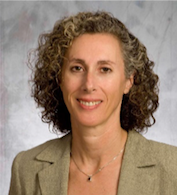 |
Wendy UNGAR is a Senior Scientist, Hospital for Sick Children, and Professor, University of Toronto. She holds a Canada Research Chair and is Director of TASK (Technology Assessment at Sick Kids) where she and her team conduct HTA in genomics and neurodevelopmental disorders. Dr. Ungar Chairs the Ontario Genetics Advisory Committee responsible for making funding recommendations for Ontario. Her book, Economic Evaluation in Child Health was published by Oxford University Press in 2010.
|
 |
Lisenka VISSERS's research group focuses on the evaluation and optimization of novel genomic technologies for diagnostic implementation for the study of human genetic disease. |
| |
|
|




